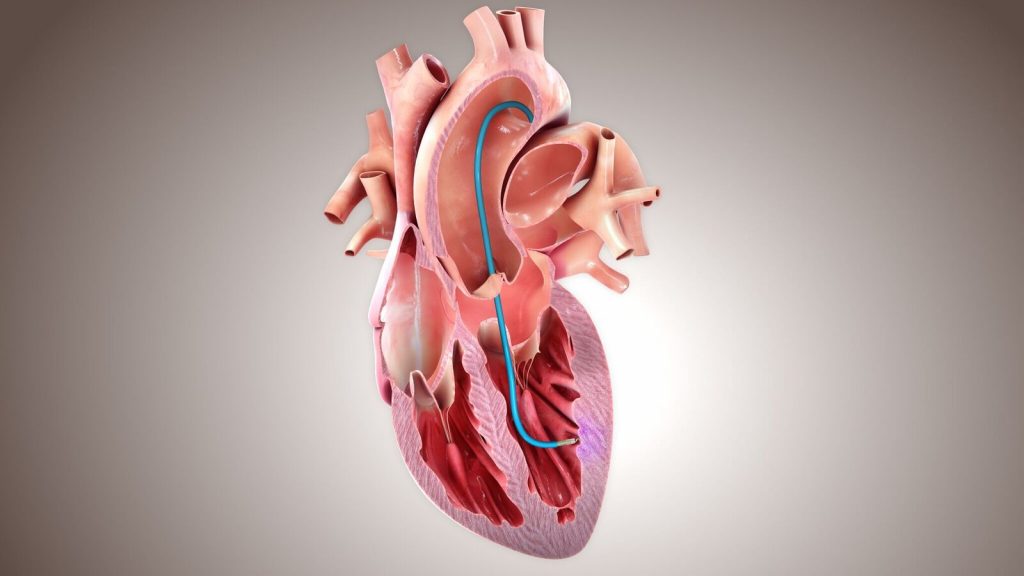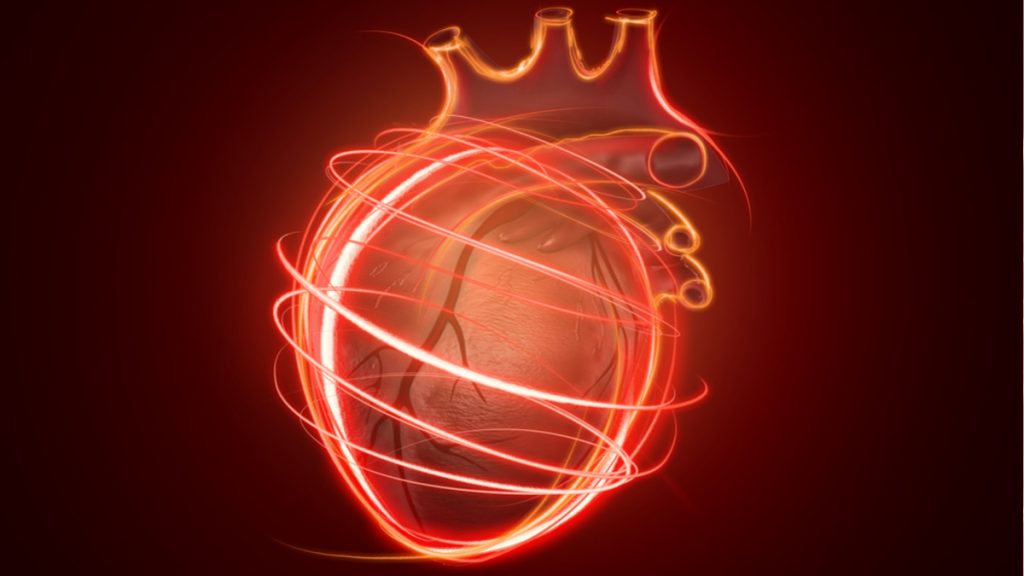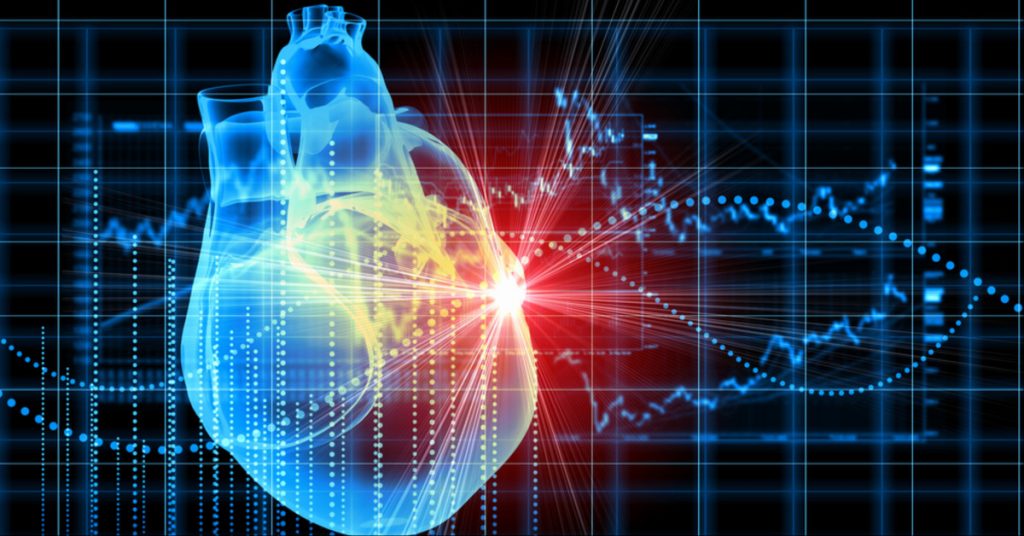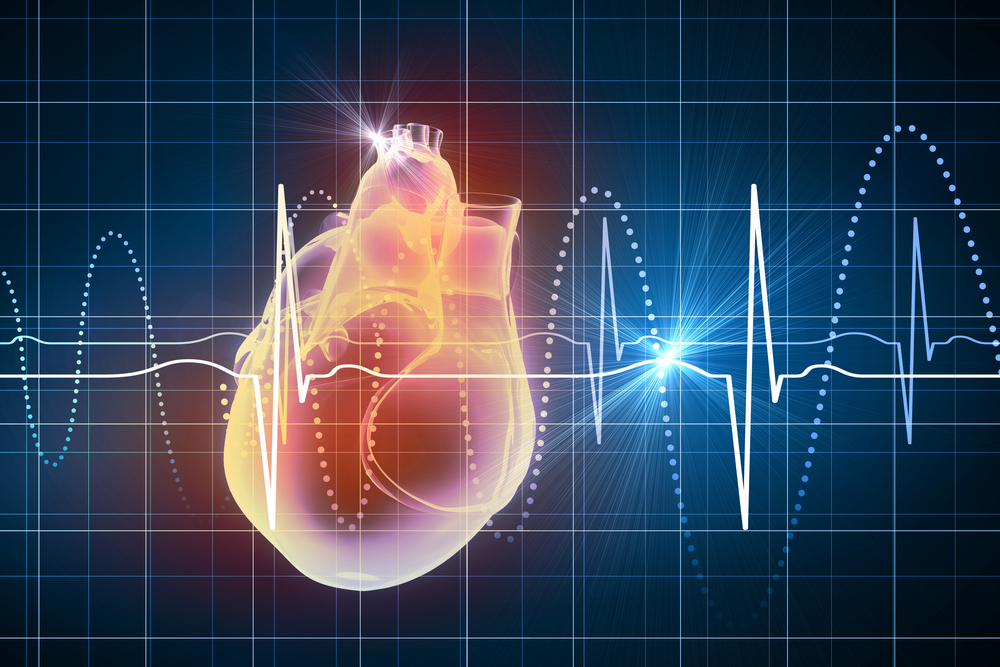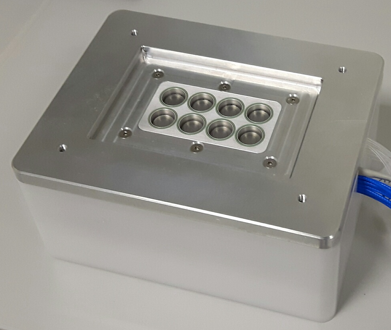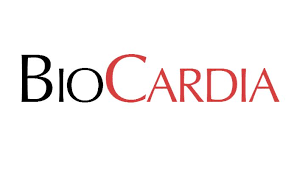 SAN CARLOS, Calif., Aug. 22, 2018 — In a Viewpoint paper published online today in Circulation Research, the Phase III CardiAMP Heart Failure Trial (CardiAMP-HF Trial) studying the investigational CardiAMP stem cell therapy from BioCardia®, Inc. (OTC: BCDA) was highlighted as an example of personalized medicine, with promising results from the first 10 patients in the roll-in cohort reported. The company believes this to be the first outcomes data published from any pivotal trial of a stem cell therapy for heart failure. The paper is authored by Peter Johnston, M.D., Eric Duckers, M.D., Ph.D., Amish Raval, M.D., Thomas Cook, Ph.D. and Carl Pepine, M.D. [Read more…]
SAN CARLOS, Calif., Aug. 22, 2018 — In a Viewpoint paper published online today in Circulation Research, the Phase III CardiAMP Heart Failure Trial (CardiAMP-HF Trial) studying the investigational CardiAMP stem cell therapy from BioCardia®, Inc. (OTC: BCDA) was highlighted as an example of personalized medicine, with promising results from the first 10 patients in the roll-in cohort reported. The company believes this to be the first outcomes data published from any pivotal trial of a stem cell therapy for heart failure. The paper is authored by Peter Johnston, M.D., Eric Duckers, M.D., Ph.D., Amish Raval, M.D., Thomas Cook, Ph.D. and Carl Pepine, M.D. [Read more…]
World’s First Clinical Application of iPS Cells for Cardiac Disease
On 16 May, Nature News reported that “Japan’s health ministry gave doctors at Osaka University permission to take sheets of tissue derived from iPS cells and graft them onto diseased human hearts.” The team of Japanese doctors, led by cardiac surgeon Yoshiki Sawa at Osaka University, will use iPS cells to “create a sheet of 100 million heart-muscle cells.”
From preclinical studies in pigs, the team determined that thin sheets of cell grafts can improve heart function, likely through paracrine signalling. Paracrine signalling is a type of cell-to-cell communication through which cells “talk” to one another, often regulating inflammation, fibrosis (scarring), and and cellular recovery.
While the treatment will only be tested in three patients, a follow-up trial could enroll ten or more patients. Under Japan’s accelerated regulatory pathway for regenerative medicines (cell, gene and tissue products), Dr. Sawa’s iPS cell therapy could be conditionally marketed to the public if a follow-up trial demonstrated safety and an initial proof of efficacy.
Launched in late 2014, Japan’s fast-track system allows for regenerative therapies to receive conditional marketing authorization for up to 7 years, following confirmation of safety and an initial proof of efficacy in Japan in diseases that are serious and have a high unmet need. [Read more…]
Fujifilm and Takeda To Co-Develop Regenerative Therapies Using iPS Cell-Derived Cardiomyocytes
 FUJIFILM Corporation and Takeda Pharmaceutical have announced they will partner to develop regenerative therapies using iPS cell-derived cardiomyocytes produced by Fujfilm’s subsidiary, Cellular Dynamics International (CDI).
FUJIFILM Corporation and Takeda Pharmaceutical have announced they will partner to develop regenerative therapies using iPS cell-derived cardiomyocytes produced by Fujfilm’s subsidiary, Cellular Dynamics International (CDI).
As stated by Aiichiro Hiruma, General Manager of Regenerative Medicine Division at FUJIFILM Corporation:
 “We are delighted to initiate this partnership applying practical use of our iPSC-derived cardiac cells with Takeda, which has abundant experience in drug development and clinical trials. In addition to establishing new treatment methods for patients with heart disease, Fujifilm and Takeda will contribute to the elevation of regenerative medication business to the industrial stage by applying our engineering technologies to manufacture high-quality cells safely and efficiently.”
“We are delighted to initiate this partnership applying practical use of our iPSC-derived cardiac cells with Takeda, which has abundant experience in drug development and clinical trials. In addition to establishing new treatment methods for patients with heart disease, Fujifilm and Takeda will contribute to the elevation of regenerative medication business to the industrial stage by applying our engineering technologies to manufacture high-quality cells safely and efficiently.”
At its core, the partnership will align manufacturing technology possessed by Cellular Dynamics International, an affiliate company of Fujifilm, with Takeda’s iPSC expertise and research to be conducted by the Center for iPS Cell Research and Application (CiRA) at Kyoto University. Together, these synergies will support pre-clinical and clinical studies for regenerative medicines that will address unmet cardiac needs, with a focus on heart failure. [Read more…]
ACEA Biosciences and Ncardia Partner to Provide Solutions for Cardiac Drug Discovery and Cardiac Safety Assessment
Axiogenesis Launches Cardio.Force, a Cardiac Contractile Force Assay Service
 Axiogenesis, a worldwide leading provider of induced pluripotent stem cell (iPS cell) products, has added a vital new service offering: Cardio.Force, a technology for measuring the contractile force of the heart. This newest service offering includes assay services for iPSC-derived cardiomyocyte functionality and toxicity assessment.
Axiogenesis, a worldwide leading provider of induced pluripotent stem cell (iPS cell) products, has added a vital new service offering: Cardio.Force, a technology for measuring the contractile force of the heart. This newest service offering includes assay services for iPSC-derived cardiomyocyte functionality and toxicity assessment.
In this article:
- The Cardio.Force Technology
- Cardio.Force’s Efficiency
- The Existing “Gold Standard” for Cardiac Force Assessment
- Cor.4CE Technology Overview
- Additional Advantages of the Cardio.Force Assay Service
Contractile Force of the Heart | Cardio.Force Service
The Cardio.Force Technology
Cardio.Force is based on the Axiogenesis’s 8-channel Cor.4CE assay device. Currently, 96 well versions are in development for an increased cardiac output and the reduction of cost per data point.

The utility of the technology was exemplified in a publication by Goßmann et al., “Mechano-Pharmacological Characterization of Cardiomyocytes Derived from Human Induced Pluripotent Stem Cells.” In the study, Goßmann concludes, “The measured data and simulations for pharmacologically unstimulated contraction resembled findings in native human heart tissue, while the pharmacological dose-response curves were highly accurate and consistent with reference data.”
Cardio.Force’s Efficiency
Such assay systems comprise the only cost-effective human in vitro technology that can measure the true cardiac contractile force of the heart. To date, common assay systems for quantitative measurement of contractility have been animal-based, which drive up cost and complexity. In contrast, the Cardio.Force assay offers an efficient system for pharmacological and toxicological studies using human cells that would otherwise require animal models or be more expensive/costly and with few cardiac outputs.
Cor.4U® human iPSC-derived cardiomyocytes are plated on extremely thin and highly flexible membranes for assessment of mechanobiological properties.
The Existing “Gold Standard” for Cardiac Force Assessment
Currently, the “Gold Standard” in toxicology and physiology has been isolated animal heart (Langendorff) preparations for contractility measurements. The Langendorff heart assay is a common in vitro approach used in pharmacological and physiological testing that allows cardiac contractile strength and heart rate to be determined without requiring an intact animal.[i] The major disadvantages of this system are that it is still an animal model, is expensive, is costing $5-20K per compound, is technically challenging, and has relatively high variability.
Other emerging technologies using iPSC-derived cardiomyocytes require very high numbers of cells creating microtissues that make the technology very expensive, while the Cor.4CE system requires only 300K cells per sample measurement.
The Cor.4CE system is also reproducible and scalable, which gives it further cost advantages.
Secondary readouts that are being championed/currently pursued for analyzing and assessing cardiac contractility include impedance measurements, atomic force measurements, movement, and calcium flux analysis. These systems fail to consistently correlate with clinical data; in contrast, the Cor.4CE system does show the expected results including a positive frequency force relationship in reaction to beta-adrenergic stimulation (e.g., isoproterenol) can be observed, proving true force measurement.
Cor.4CE Technology Overview
The Axiogenesis’s Cor.4CE device involves the culture of validated human iPSC-derived cardiomyocytes (Cor.4U) on flexible membranes for a more physiological system. The Axiogenesis Cor.4CE Analysis software allows for derivation of the true contractile force of the heart from the measurement of the displacement of the membrane generated by the contracting cardiomyocytes. It allows for repeatable contractility measurements with unprecedented accuracy under physiological mechanical conditions. Optionally, Cor.4U cardiomyocytes can be co-cultured with Cor.4U fibroblasts in order to increase the physiological relevance of the cell system.

Additional Advantages of the Cardio.Force Assay Service
- True force measurement in human iPSC-derived cardiomyocytes using proprietary Cor.4CE assay technology
- Highly precise, standardized, and repeatable test system in defined/controlled culture conditions
- Sensitive and predictive for cardiac safety pharmacology
- Suitable for scale-up given low compound volumes, quick turnaround
In summary, the combination of Cor.4U with the Cor.4CE system is the first in vitro assay setup to measure the true contractile force of the heart of iPSC-derived cardiomyocytes in a system suitable for scale-up. The system provides an ideal tool to assess pharmacological, safety pharmacological, and toxicological effects of drug candidates on human cardiomyocytes.
If you found this article valuable, subscribe to BioInformant’s stem cell industry updates.
We are the industry leaders in stem cell research, with research cited by The Wall Street Journal, Xconomy, AABB, and Vogue Magazine. Bringing you breaking news on an ongoing basis, join more than half a million loyal readers, including physicians, scientists, investors, and philanthropists.
What is your opinion about the Cardio.Force technology of Axiogenesis? Share your thoughts in the comments section below.
Up Next: Cynata’s iPSC-derived Cell Therapeutic (CYP-001) Meets Safety & Efficacy Endpoints
Footnote
[i] Bell, R., Mocanu, M. & Yellon, D. Retrograde heart perfusion: The Langendorff technique of isolated heart perfusion. Journal of Molecular and Cellular Cardiology 50, 940-950 (2011).
Editor’s Note: This post was originally published on February 1, 2017, and has been updated for quality and relevancy.
